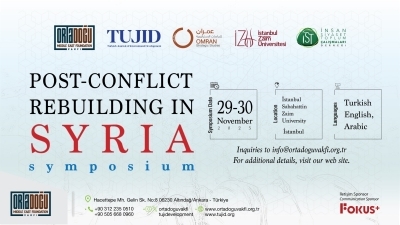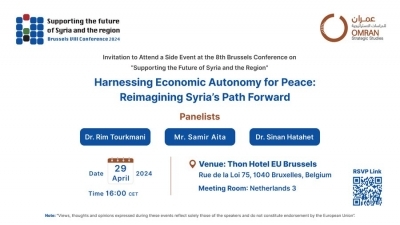Reports
Caesar Testimony: A Step Forward to counter With Assad Regime
This article aims to provide a set of recommendations to the Syrian opposition’s decision makers about how to deal with the leaked images of war crimes committed by the Syrian regime in its prisons. They should take into consideration that they should take a series of steps to establish a committee of international forensic experts and diplomats to present the file to the International Criminal Court.
At the start of Geneva II talks between the Syrian regime, the Syrian National Coalition for Revolutionary and Opposition Forces (SNC-ROF) and other Syrian opposition members, a significant number of photographs were released. These photographs display deceased Syrians bearing the marks of systematic torture and killing; all seem to be detainees held in Bashar al-Assad’s regime prisons. Three former international prosecutors confirmed that the Syrian regime has systematically killed and tortured around 11,000 detainees. They released their report after they examined some 55,000 pictures smuggled out of Syria by a former military police photographer known by the alias “Caesar”; “Caesar’s testimony played a key role in verifying the contents of the photographs.
The report along with the leaked photos came into the public sphere after a long process, professionally orchestrated by International Criminal Law experts. The Syrian National Current (Attayar Alwatani Alsouri), one of the main SNC-ROF parties, sponsored “Caesar” and his valuable material. Financial and technical assistance from the State of Qatar made the legal examination and the evidential authentication process possible, thus bringing into effect the presentation of a final report to the three former international prosecutors.
The process of revealing such strong evidence of war crimes and human rights violations committed by Bashar Al Assad’s regime reached a climax on 7 August 2014 when “Caesar” delivered his in person testimony to a congressional committee. “Caesar” revealed previously unreleased photographs to US lawmakers showing prisoners who were brutally beaten, starved and murdered. The hearing also included expert testimonies delivered by: International War Crimes scholar Dr. Cherif Bassiouni who helped create the International Criminal Court, International War Crimes prosecutor David Crane, and Frederic Hof, a former State Department senior official dealing with Syria.
Caesar’s photos gave US lawmakers a rare glimpse into the human tragedy resulting from the Assad regime’s practices. Violence in Syria throughout the duration of the ongoing conflict has claimed more than 170,000 lives. Caesar’s testimony comes at a time when some in the Obama administration are advocating "a de facto alliance" with Syrian President Bashar al-Assad to fight ISIS extremists. In response, Frederic Hof, former special adviser for transition in Syria at the US Department of State, recently wrote, "Those who counsel cooperation with Assad should think things through very, very carefully with their own reputations in mind”. Hof told members of the committee hosting the hearing that the photos should compel the Obama administration not to work with the Assad regime, noting that “this briefing eliminates the moral admissibility of any collaboration with the Assad regime,” adding that the only other plausible option was to drastically increase American support to the Free Syrian Army.
Regardless of the hearing’s significance and its essential role in advancing the struggle against Assad’s regime, we must take further steps to increase the possibility that Bashar Al Assad, his inner circle of accomplices, and other implicated actors are held accountable for their crimes. The following are three recommendations to reach the best possible outcomes:
1- Establish a committee of legal, diplomatic, and other relevant experts to present available evidence implicating those responsible for war crimes or crimes against humanity or human rights violations in Syria to the Committee against Torture (CAT) in Geneva, and recommend the Committee take more concrete actions about such crimes. Also, coordinate the same effort with the International Commission of Inquiry formed by the Human Rights Council.
2- Coordinate with The Friends of Syria to draft a resolution at the Human Rights Council’s upcoming September 2014 session a that pushes for a strong condemnatory language with a clear recommendation to the United Nations’ General Assembly (in line with the HRC mandate) to hold the perpetrators of these crimes accountable and to put an end to impunity.
3- Increase media and diplomatic pressures recommending that the United Nations General Assembly should pursue with all available and possible means either: a) referring the file of any and all war crimes, gross human rights violations, and crimes against humanity in Syria to the ICC; or, b) establishing a special tribunal for Syria (similar to the ones formed for former Yugoslavia and Rwanda) to deal with all cases of such violations. The next United Nations General Assembly meeting begins September 16, 2014.



